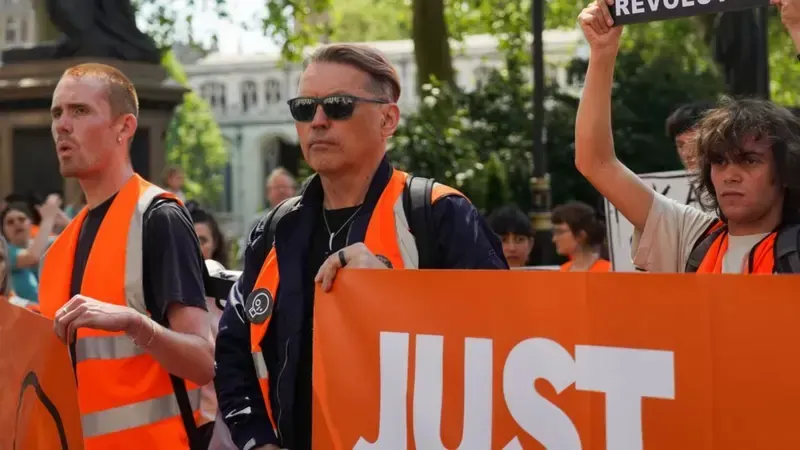Vince's choice to withdraw his financial backing from Just Stop Oil comes after he had previously contributed a substantial sum of £340,000 to support their cause. However, his perspective has evolved as he perceives the government's unwavering dedication to oil drilling. Furthermore, he contends that the tactics employed by the activist group have been manipulated by the Conservative Party, contributing to what he views as a divisive culture war.
Remarkably, despite his generous donations to the Labour Party, there is no clear indication that Just Stop Oil directly funded the party. Nevertheless, this move has ignited some controversy, with certain Conservatives demanding that the Labour Party return Vince's donations, arguing that it legitimizes the tactics of the activist group.
In response to these demands, the Labour Party has staunchly defended its acceptance of donations from Vince, asserting that he is a legitimate and ethical donor. This ongoing debate over political donations underscores the broader discussions around the role of money in politics and its potential influence on policy and political decisions.
The consequences of Vince's decision to withdraw his support from Just Stop Oil remain uncertain. The group predominantly relies on funding from the Climate Emergency Fund based in the United States. This financial reliance on international sources emphasizes the interconnected nature of global climate activism and the diverse range of supporters such movements can attract.
From the perspective of Just Stop Oil, they firmly maintain that civil resistance remains an effective means of advocating for change. The group has not minced words in their criticism of the Labour Party, accusing them of lacking the determination to put a stop to government-approved oil and gas projects. This critique prompts us to question the effectiveness of various approaches to climate activism and the complexities of navigating political landscapes.
Dale Vince's decision to shift his support away from Just Stop Oil serves as a vivid example of the intricate and ever-evolving dynamics within the realm of climate activism and political funding. It underscores the recognition that strategies and priorities can adapt in response to changing political climates and assessments of the effectiveness of advocacy efforts.
Vince's apprehension about the government's unyielding stance on oil drilling is not without grounds. The oil and gas industry has long been a contentious issue in British politics, sparking debates regarding its economic benefits and environmental repercussions. The government's position on this matter directly influences climate policy and environmental sustainability, making it a pivotal concern for those advocating for greener alternatives.
Moreover, Vince's decision to channel his efforts into supporting anti-Conservative initiatives and encouraging youth voter participation emphasizes the crucial role of political engagement in shaping policy outcomes. In his viewpoint, not supporting the Labour Party or abstaining from voting could inadvertently bolster the Tories and their perceived resistance to environmental reforms. This highlights the significance of political participation as a means of influencing policy decisions and holding elected officials accountable.
The ongoing debate surrounding the legitimacy of Vince's donations to the Labour Party adds another layer of complexity to the intersection of money and politics. It raises pertinent questions about the ethical considerations surrounding the acceptance of donations from individuals or organizations with specific agendas, and whether such financial support can be construed as an endorsement of particular tactics or ideologies.
As this situation continues to unfold, we are left to ponder how Dale Vince's decision will impact Just Stop Oil and the broader landscape of climate activism in the United Kingdom. The group's reliance on international funding sources underscores the global nature of environmental advocacy, while their commitment to civil resistance as a means of effecting change highlights the diverse strategies employed by climate activists.
In conclusion, Dale Vince's choice to cease funding Just Stop Oil and redirect his support toward anti-Conservative efforts and youth voter participation embodies the fluid and evolving nature of climate activism and political engagement in the United Kingdom. This development raises pertinent questions about the role of money in politics, the efficacy of advocacy strategies, and the significance of political donations in shaping policy outcomes.
The One With Three Eyes 👁
Tags:
news

